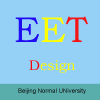-
Wikis
普通类 -
- 支持
- 批判
- 提问
- 解释
- 补充
- 删除
-
-
Wikis
WIKIS PROVIDE UNIQUE COLLABORATIVE OPPORTUNITIES for education. Combining freely accessible information, rapid feedback, simplified HTML, and access by multiple editors, wikis are being rapidly adopted as an innovative way of constructing knowledge.
-
What is a wiki?
The name comes from the Hawaiian word for "quick," and the term is generally attributed to Ward Cunningham, who, in 1995 set out to create "the simplest database that would work." Devoted to the search for useful and reusable patterns in software development, Cunningham's WikiWikiWeb still remains today a benchmark in wiki development.
However, the characteristic that has most strikingly set wikis apart from other web based forums and discussions is that of multiple contributors. Unlike a blog, for example, which has one main identifiable author, a wiki web page may be authored and edited by a number of people. Not only may an individual contributor edit their own work, but also the work of others. Some speak of wiki pages in their purest form as never being finished and always in the process of being edited and expanded..jpg)
-
Why do wikis work?
Given the collaborative nature of wikis, a logical question is how does a wiki page ever evolve to actually become a coherent, well thought out body of knowledge? What is to prevent an individual from posting unconstructive or factually incorrect information? Specific characteristics have been suggested as contributing factors in the success of prominent wikis.
.jpg)
Some interesting factors center around the nature of online wiki communities. Wikis tend to be developed around specific subject interests. As an online group of contributors develop and edit pages of mutual interest, each takes personal ownership in ensuring accuracy and thoughtful reflection regarding the topic at hand. Because a single page can be continually edited and refined, multiple persons "look out" for accuracy and overall content quality.
Even in extensive cases of intentionally destructive editing, several measures are usually in place to repair the damage. Each time a page is edited, a copy of the previous version is saved. An earlier version can be easily loaded to replace the damaged version. In some cases, individual IP addresses or users have been blocked from contributing.
A current discussion in wiki development centers around the balance between accessability and security. How can the free exchange of knowledge and ideas be allowed while at the same time ensuring a productive "safe" wiki environment? Some wikis, especially in selected corporate and educational settings now require some sort of initial registration for participation in an attempt to balance these two factors.-
Wikis in education
Wikis are beginning to be used in many innovative ways across a broad range of subject areas. Several factors have been identified in the successful implementation of educational wikis. Some educators have reported that they have better success when wikis are narrowly and specifically focused for a definite period of time; a group writing project with a deadline being one example. It is also helpful to construct wiki problems that offer multiple solutions, ensuring continued dialog and collaborative problem solving among students.
Other instructors find that they need to change how they interact with students in the wiki environment. Rather than virtually jumping into an ongoing online collaboration, even to offer positive comments, it may ultimately be more productive to allow students to challenge and correct each other -- the teacher only posting comments, questions or suggestions when absolutely neccessary. As a constructivist learning activity, wikis allow students to "own" their learning experience in an online collaborative environment.
Wikis allow each contributor to both author and edit collaboratively.-
More Information
Perhaps the best way to learn about wikis is to experience them. If you haven't yet explored some of the best, click on the wiki logo graphic at the top of the page.
The sources listed below offer additional examples of wikis in action and helpful insights regarding the possibiities of wikis in education.
Georgia Tech (2000) A Catalog of CoWeb Uses by Collaborative Software Lab. Retrieved December 3, 2004 from the World Wide Web: ftp://ftp.cc.gatech.edu/pub/gvu/tr/2000/00-19.pdf.
Lamb, B. (2004) Wide Open Spaces: Wikis, Ready or Not. EDUCAUSE Review, vol. 39, no. 5 (September/October 2004): 36-48. Retrieved December 3, 2004, from the World Wide Web: http://www.educause.edu/pub/er/erm04/erm0452.asp.
Moody, G. (2004) Of blogs and wikis. Retrieved December 3, 2004 from the World Wide Web: http://news.netcraft.com/archives/2004/03/26/of_blogs_and_wikis.html.
What is a wiki?: Retrieved December 3, 2004, from the World Wide Web: http://tecfa/unige/ch/guides/tie/html/wikis/wikis-2.html.
Why Wiki Works: Retrieved December 3, 2004, from the World Wide Web: http://c2.com/cgi/wiki?WhyWikiWorks.
Wiki History: Retrieved December 3, 2004, from the World Wide Web: http://c2.com/cgi/wiki?WikiHistory.
Wikipedia (2004) Wiki. http://en.wikipedia.org/wiki/wiki.
For more information on wikis in education, see the EET article on Digital Natives in the Classroom.-
Author
Cathy Arreguin, Graduate Student ,Educational Technology
Arreguin, C. (2004). Wikis. In B. Hoffman (Ed.), Encyclopedia of Educational Technology -
-
- 标签:
- world
- 2004
- web
- edited
- collaborative
- wiki
- december
- http
- retrieved
- wikis
-
加入的知识群:



学习元评论 (0条)
聪明如你,不妨在这 发表你的看法与心得 ~